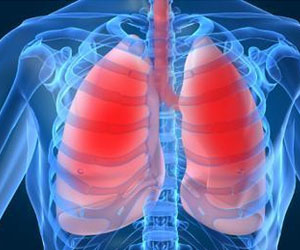
Emphysema is the most common cause of death from respiratory disease in the United States, and is the fourth most common cause of death overall. There are 1.8 million Americans with the disease, which ranks fifteenth among chronic conditions that cause limitations of activity. The disease is usually caused by smoking, but a small number of cases are caused by an inherited defect.
Normally functioning lungs are elastic, efficiently expanding and recoiling as air passes freely through the bronchus to the alveoli, where oxygen is moved into the blood and carbon dioxide is filtered out. When a person inhales cigarette smoke or certain other irritants, his or her immune system responds by releasing substances that are meant to defend the lungs against the smoke. These substances can also attack the cells of the lungs, but the body normally inhibits such action with the release of other substances.
In smokers and those with the inherited defect, however, no such prevention occurs and the lung tissue is damaged in such a way that it loses its elasticity. The small passageways (bronchioles) leading to the alveoli collapse, trapping air within the alveoli. The alveoli, unable to recoil efficiently and move the air out, over expand and rupture. As the disease progresses, coughing and shortness of breath occur. In the later stages, the lungs cannot supply enough oxygen to the blood. Emphysema often occurs with other respiratory diseases, particularly chronic bronchitis. These two diseases are often referred to as one disorder called chronic obstructive pulmonary disease (COPD).